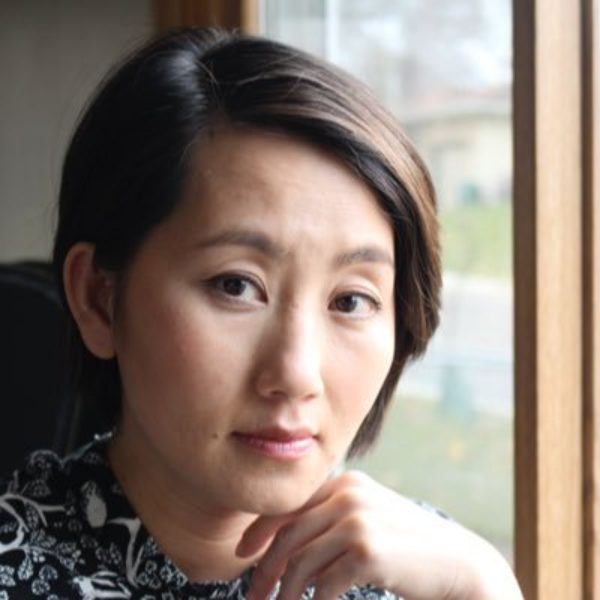
Image by Paula Bronstein/Getty Images, © All Rights Reserved.
A Refugee Woman on Antidepressants
Kho Kho Siab is loneliness in the Hmong language. Kho is to fix. Siab is to heart. Fix the heart. Please.
The woman laid on the sofa, her head on its leathery arm, her cell phone in her hand. She’d put on weight. With each breath she took, her stomach rose, a soft mound of flesh beneath the polyester shirt she wore. She needed a haircut. Her black hair kept short had grown long, its strands covering most of her eyes like a teenage boy’s. Her hair hadn’t been this greasy since the days when she worked the night shift and then spent the rest of her time caring for her young children. The time she could use to wash her hair, she used to sleep instead.
She looked sluggish, sagging flesh and clothing, sitting there on the sofa, her iPhone in her hands.
The woman spent all her time looking at flowers on the Internet. She knew how to find and save the photos, flowers everywhere, from around the world, the tulip fields of Holland, the orchids of Thailand, the beautiful Buddhist lotus ponds, the purple heathers abloom on the English moors. Once she saved the photos, she spent hours editing them, changing the filters and cropping the images. She said she had over 11,000 pictures on her phone.
Sometimes, she was afraid. She said that black things moved across the living room floor, the size of cats. Her eyes frantic, she made no sounds. Instead, she froze in place. The only movement her eyes helplessly searching for an exit from her body.
She had vivid dreams full of handsome men who came into her life on horses. They all wanted to marry her and take her away. In the dreams, she wanted to go with them, except she couldn’t quite lift herself off the ground and onto their high horses. Her body was heavy in the dreams, anchored firmly to the earth. Sometimes, she woke up reaching for the handsome men only to feel the empty, lonely air of their absence.
She couldn’t sleep at night without her drugs. Even with them, in the day she was tired, drowsy, had no heart for anything or anyone, she said.
Sometimes, she cried for her dead father. It’d been nearly half a century since his death but to her it was fresh as the morning. She said she knew where he was, always at the edge of the horizon. There he waited for her with wings like the birds. He sent messages to her. He offered a promise to lift her up high so they could soar through the skies together. From there, he told her, she wouldn’t have to miss her kids because she could still see them on earth.
Most of the time, though, she spent her days on the sofa looking at her phone.
She did not have the energy to cook or clean, two things she’d always attended to as a matter of life and death for her children.
In the past, no matter how little sleep she was functioning on, she made traditional Hmong meals with no store-bought sauces and little fat for her family. She boiled fish with lemongrass, tomatoes, green onions, culantro, mint, basil, red hot chili peppers, cilantro, a touch of MSG, and then salt to taste. She made bowls of rice in tofu and chicken soup. Her children loved her mung bean thread soup with minced pork and green onions and cilantro, black pepper galore. As they ate, she stood at the sink waiting to wash each plate, bowl, spoon, and fork.
Now, she herself was never hungry and her children’s hunger held no more power to get her up.
All her life, no matter where they were — in the camps of Thailand or the housing projects of Minnesota — her and her husband’s bedroom was a place where the bed was always made, the floor clean, a space where clothes were folded in baskets, hung in closets, stored in drawers. No matter the mess beyond its doors, the chaos of the unsteady world was never allowed to enter. Now, she’d place a blanket on the floor. The mountain of clean clothes that needed to be folded and put away was nearly as high as their rumpled bed. Now, the dust of their lives had settled onto her body and had grown so thick she could barely move.
Her husband, too used to the woman from the past, perhaps hoping that she would return in light of the current conditions of their room, did not pull the covers over the sheets in the mornings or sit to fold the clothes, so the pile grew higher and higher.
At the doctor’s offices, the nurses gave her evaluations. Worksheets for her to circle her emotions on: how strong they were, how much pain she was in. (On the question of pain — it was always physical, never otherwise.)
Each time she said, “the same,” the doctors increased the dosage of her prescriptions. When one prescription did not work, the doctors shifted to another. The woman was put on Wellbutrin, Prozac, Zoloft, Paxil, Effexor, Cymbalta, and more.
One pill made her believe that she was on the cusp of death. Her heart would start racing. She grew short of breath. She spoke her death wishes: Keep things simple at the funeral; I don’t want anything fancy; follow the most rudimentary details of tradition.
At the doctor’s office, on the suicide question, she shook her head adamantly, and said, “My biggest fear is that I’ll die and leave my children behind. I would never kill myself.”
She wept.
The doctors asked why she was so sad.
She answered, “I don’t know what to do with myself. I am out of work. I’m too young to be useless. My children need a mother who can take care of them.”
The doctors wanted her to go into the world. She didn’t drive. She didn’t speak good English. Her hands hurt. Her feet hurt. Her neck hurt. She was falling apart. The doctors said they could not change the conditions of her life, that the only thing they could do was change the conditions of her head. No one knew what to do with her heart.
Her fiery heart. The heart of the little girl, the only one in her village to go to school, to race in front of the boys in the classroom. The heart of the young woman who’d chosen love in a war full of death and despair, made a call to build a life from a world falling apart. The heart of the mother who would place each of her children, alive and dead, before herself with no misgivings or regrets. The heart of a wife who did everything hard so her husband, in a world that had given up on him, could not give up on her, thus their life together. Now, her heart was hurt.
The pills made the woman so tired she could not fret about going into the world. They numbed her body so she could not feel the pain in her hands, her feet, her neck. They glued her together in a bubble of despair. The doctors could not change the conditions of the woman’s life, but they made it so that she could not interact with them or us.
Each day, the woman floated further and further away, all by herself, in a bubble full of flowering images, framed and filtered. One day, the bubble rose high, a brisk wind blew, and it lifted far into the clouds of another world. The woman became a shining particle in the wide openness of everything.

